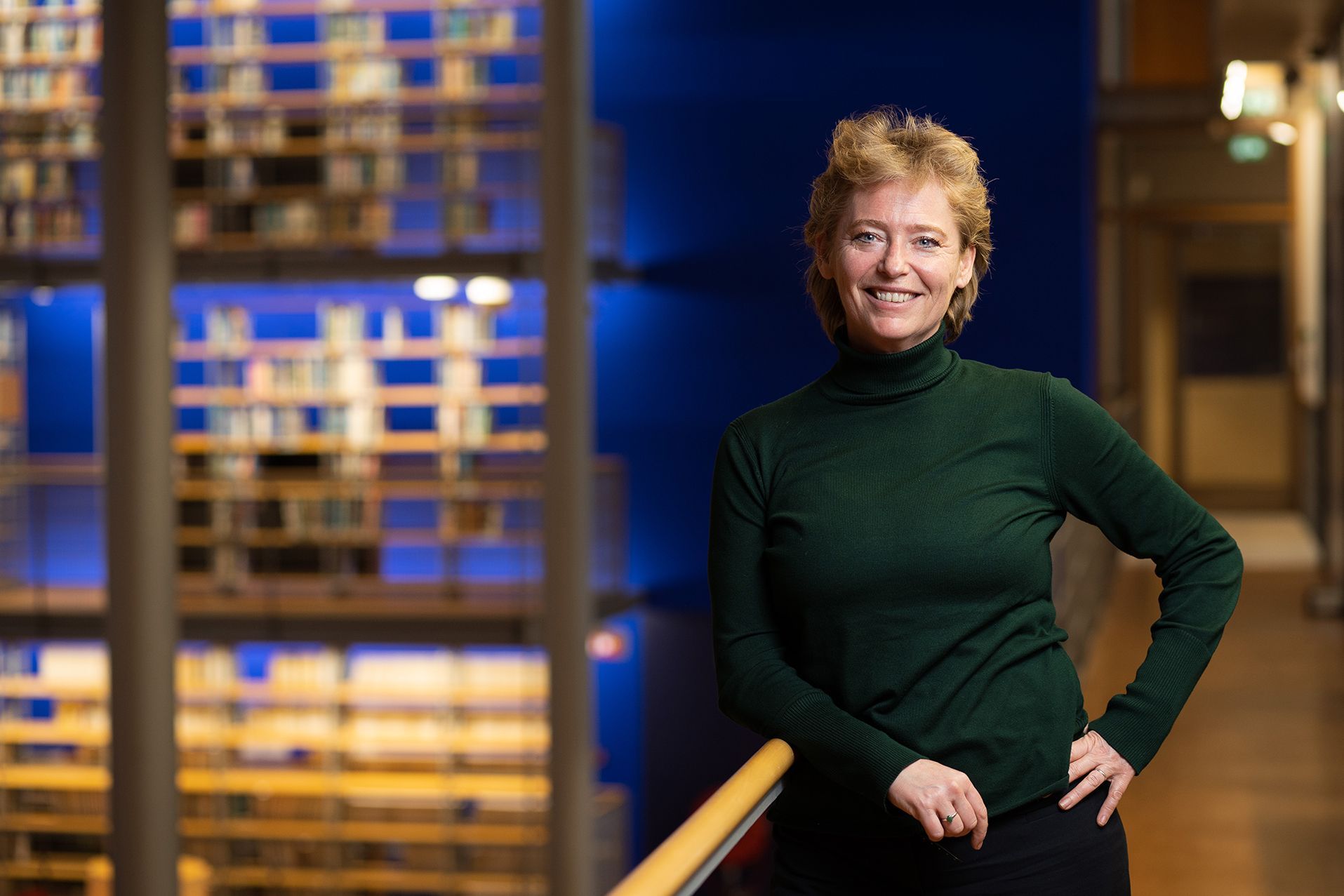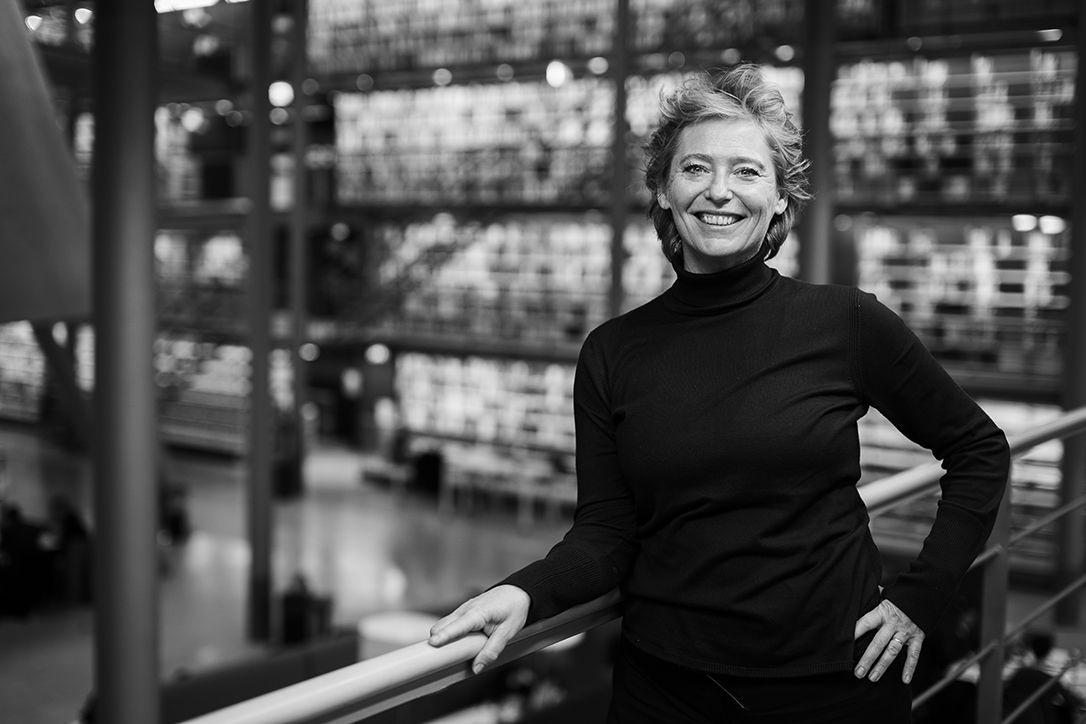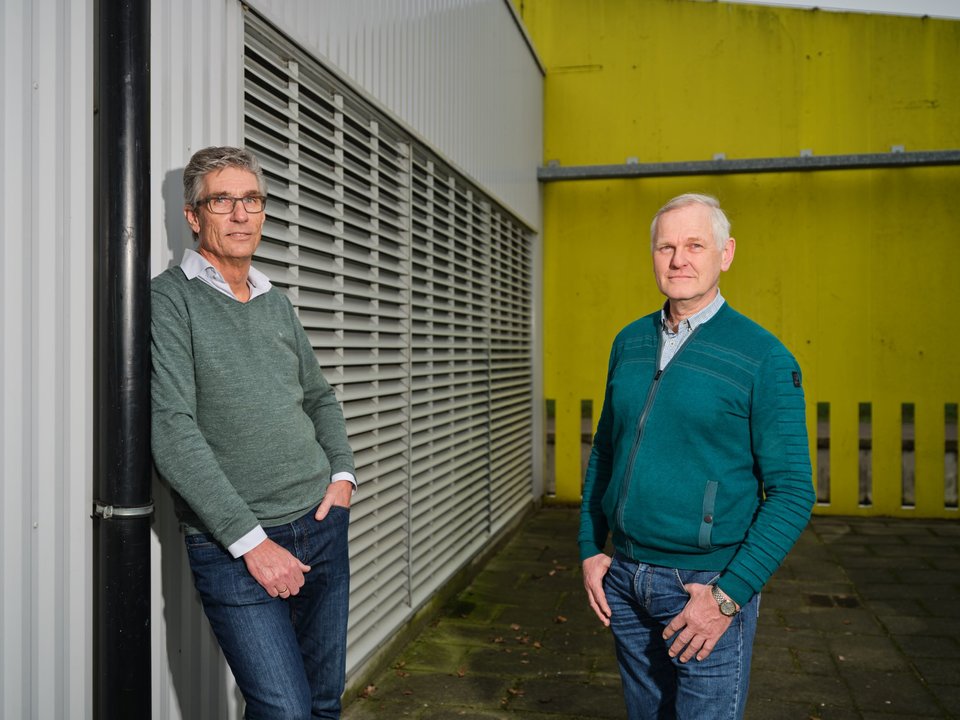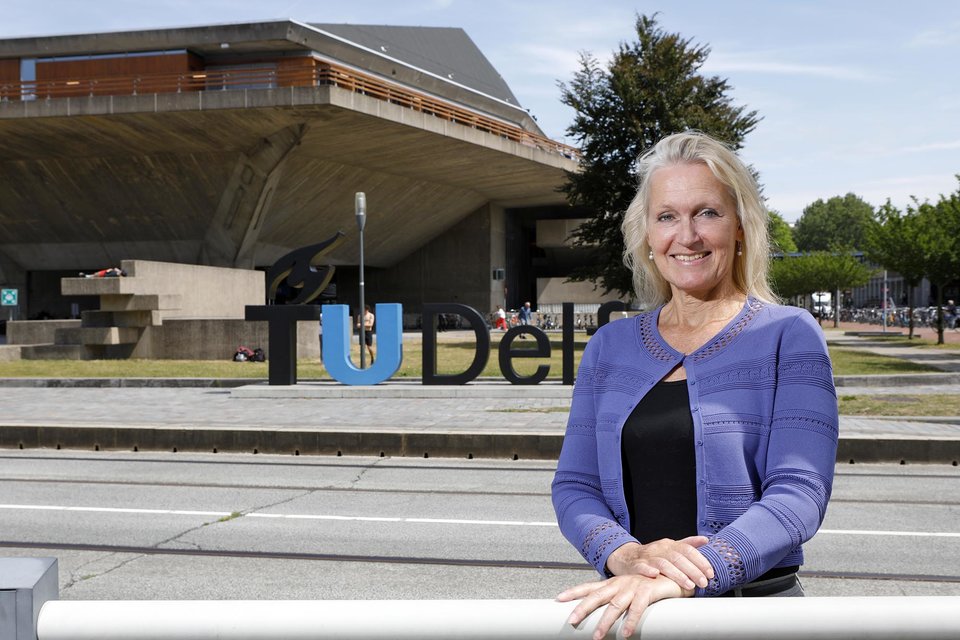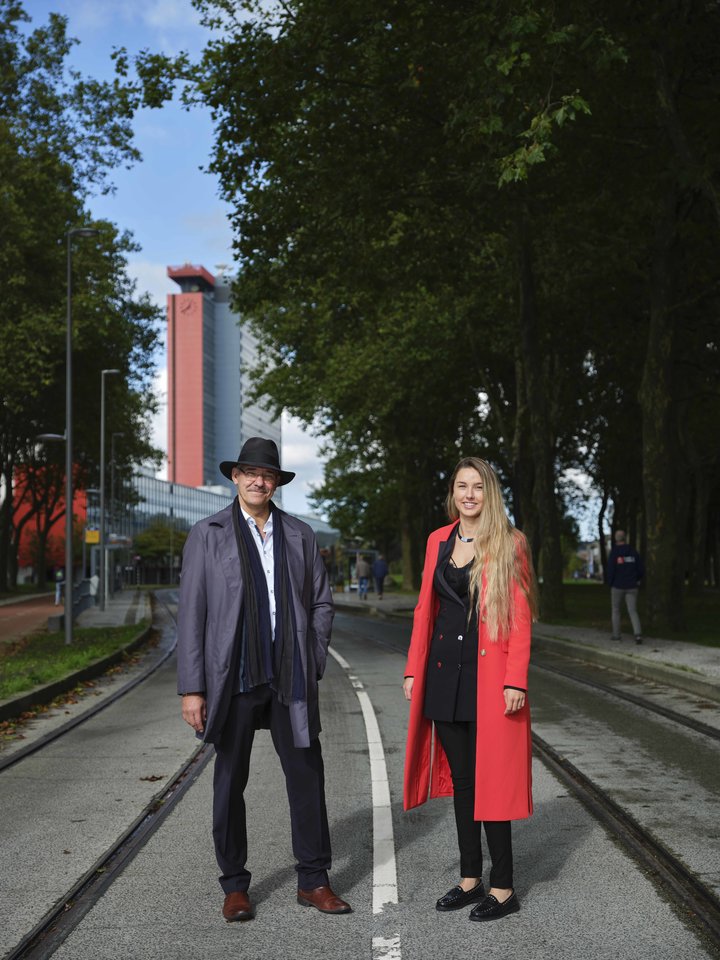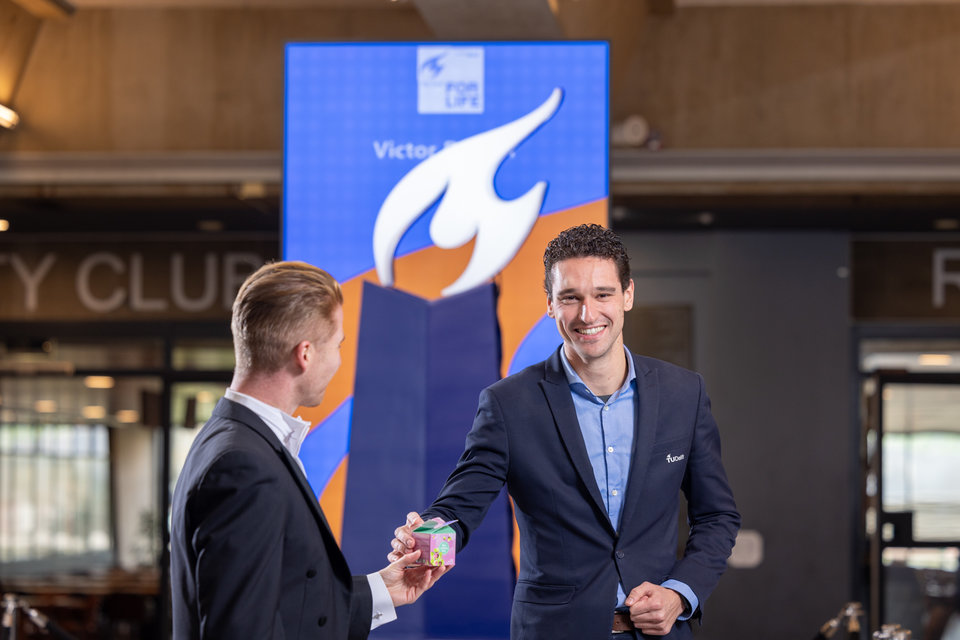As head of fundraising, Cindy de Visser’s job at Delft University Fund couldn’t be clearer: expanding the University’s fundraising. This is primarily about awareness raising. “Externally, there’s a need for greater awareness, and, internally, the idea that it’s okay to ask still needs to become fully established.”
This is a challenge that all Dutch universities face or are in the process of considering: in order to become less dependent on government funding, they are trying to tap into a fourth source of funding – philanthropic giving in the form of business and private sponsorship. Celebrating its 95th anniversary next year, Delft University Fund expanded its mission to become ‘promoting and supporting research, education and talent development in the broader sense’ several years ago. Adding research to the mix raised its fundraising to a higher plane.
This can take some getting used to, both for potential donors and those who receive donations. “People still often associate fundraising with collecting for charity in the street or even begging. In my first months at TU Delft, the word begging was mentioned a lot,” says Cindy de Visser, who has been head of fundraising at Delft University Fund since March 2017. “We’re hardly poverty-stricken, people say. That may be true, but all kinds of opportunities can be seized more quickly and more effectively with an extra financial injection; we need to leverage that power to raise funds.”
Another source of funding?
When she applied for the job at TU Delft, even De Visser was unaware of this fourth source of funding. “My first question was: ‘What do you mean fundraising – surely higher education is funded from taxation?’” she explains. “If I’m unaware of the fact that you can donate to a university, the rest of the country probably is too.” In the world of good causes, De Visser has quite a history; she spent nine years working at the Dutch children’s rights organisation KidsRights, where she is still a member of the board. “So there’s definitely a need to increase awareness outside the university, and people internally also need to realise that there’s nothing wrong in asking.”
A shining example for Dutch universities is the Anglo-Saxon model according to which alumni make donations to their alma mater under the motto of ‘giving back’. But De Visser still senses some hesitation within the organisation about asking for donations. “People tend to feel that you need to build up a relationship with your alumni before writing and asking for money. But giving something back, whether it’s time or money, is also part of developing that relationship. It’s a way of demonstrating engagement. You need to make that engagement reciprocal and then carefully maintain the relationship. For us, fundraising is therefore also always about ‘friend raising’.” This links in nicely with the motto of the Delft alumni programme ‘TU Delft for Life’.
“Er liggen allerlei kansen die met een extra financiële injectie
beter en sneller verzilverd kunnen worden; vanuit die kracht
moeten we fondsen werven.”
Specifics to capture interest
“Our alumni happily contribute to a specific research project or challenge; I’ve learned that you need to use specifics to capture their interest,” explains De Visser. This involves bringing together demand and supply. “I work a lot with communication managers in the faculties trying to find suitable projects. It’s not an easy task. The money doesn’t always start pouring in as soon as you send out your first letter. This means that you have to search for academics who would benefit from any donation, regardless of how successful the campaign turns out to be. On the other hand, proposals don’t need to be budgeted down to the last decimal place, as they do when you’re applying for grants. You have a bit more freedom. The important thing is to set out your ambition and your dream.”
Internally, De Visser is trying to encourage this culture of asking. “Raising awareness plays an important role in this. People don’t usually donate the first time; they only tend to take action when they’ve seen that there is a need for their donation six or seven times and realise it can make a difference. This means that even if your campaign fails to raise large amounts of money, all of the faculty’s alumni will still have seen that they can donate,” she explains. “Besides, a campaign is also a form of publicity, demonstrating what we’re working on. For example, the Faculty of Electrical Engineering, Mathematics and Computer Science (EEMCS) was very eager to demonstrate the important role computer science has to play in medical issues. Fundraising is a great mechanism for involving people in what you’re doing in a different way.”
Phage bank
There is now quite a long list of successful campaigns, such as the ‘phage bank’. Stan Brouns conducts research on bacteriophages as a potential alternative for antibiotics. Thanks to the alumni of the Faculty of Applied Sciences and University Fund donors, it was possible to open the very first phage bank in April 2019. “Two fundraising campaigns raised a total of €144,248 but that was not the only benefit,” says De Visser. “Stan Brouns was able to use the introduction of the phage bank as part of his application for a Vici grant. He was also approached by microbiology companies wanting to collaborate or offer internship positions. What’s more, the Experience Day for alumni from the Faculty of Applied Sciences gave visitors an opportunity to see a great presentation on the subject.”
Algorithms against Alzheimer’s
Alumni also reached into their pockets to support research by Marcel Reinders, professor of Bioinformatics in the Faculty of EEMCS. In June 2019, he was awarded €118,635 for research into algorithms against Alzheimer’s. “This is a specific collaborative project between TU Delft and Alzheimercentrum Amsterdam. After our campaign, the centre also involved its own network in the campaign for donations. We now intend to discuss the other sources we can potentially tap into as part of this collaboration.” Not everything is yet totally on track. “We just had a TU Delft Health College lecture on the same subject. It would have been nice if it could also have included some kind of fundraising. It doesn’t need to take centre stage at an event like that, but a stall with leaflets is another useful way of raising awareness among visitors.”
Testing things out
De Visser remains philosophical about it all. “It’s impossible to know everything that’s going on in an organisation like TU Delft; there’s also a certain element of luck involved. And besides: TU Delft people like to get things done and don’t mind testing things out; you’re also allowed to make mistakes.” One of the things currently being tested are telephone campaigns. “With these, we’re trying to pull in alumni by having students update them on the latest news from the faculty or thanking donors for a previous donation.” The request for a donation then comes at the end of the conversation.
In this way, Delft University Fund is gradually expanding its range of fundraising activities. “The Global Initiative aims to help solve urgent problems in society in developing countries. When it celebrated its fifth anniversary in November, we invited capital funds for the first time to see if they wanted to invest in that research.”
The recent donation from KLM for the development of the Flying V was also the result of mediation by Delft University Fund.
The number of Delft University Fund’s ‘Good Friends’ is also on the rise. “This is a large group mainly made up of alumni who issue a deed of donation for a significant amount of money that can then be deducted from income tax.”
Many people feel that legacies should be the next step. “That’s actually quite a large market. Increasing numbers of people are choosing to leave part of their inheritance to civil-society organisations. We’re also a philanthropic country: 70% of Dutch people above the age of 15 donate something, whether it’s to the football club or TU Delft,” says De Visser. “Older people tend to give the most. It’s hardly surprising: they have fewer things to spend money on by that age. Many of our donors are also older; we intend to make them aware of the possibility of leaving a legacy.”
Jong geleerd…
Het UfD richt ook zijn blik studenten. “Als we studenten nu niet in aanraking brengen met de mogelijkheden om te geven, moet we dat alsnog doen na hun afstuderen.” Een goed moment om dat ter sprake te brengen is als ze zelf een beroep doen op het UfD. “Jaarlijks geven we veel studenten een bijdrage, bijvoorbeeld om een masterpresentatie in het buitenland te geven, of om mee te doen aan een competitie”, vertelt De Visser. “Iedere student die een bijdrage krijgt, wordt verplicht donateur voor een bedrag van vijf euro per jaar; dat mogen ze na een jaar eventueel weer stopzetten. Maar in alle communicatie vertellen we ze: deze subsidie werd mogelijk gemaakt door alumni van de TU Delft, geef iemand anders ook die kans. Pay it forward.” Sinds september 2019 worden deze bijdragen geregeld door FAST, de studentencommissie van het UfD.
Is fondsenwerving nog een relatief nieuw begrip binnen de universiteit, helemaal alleen hoeft De Visser het niet op te knappen. “Alle universiteiten zitten in hetzelfde schuitje. Daarbij kunnen we heel veel van elkaar leren: de een is verder met telemarketing, de ander met een grotegiftencampagne. De samenwerking tussen goede doelen onderling was vroeger wel eens lastig, maar bij universiteiten geldt: onze alumni zijn de hunne niet. We helpen elkaar dus graag.”
Meer weten over de mogelijkheden van fondsenwerving? Kijk op www.universiteitsfondsdelft.nl of neem direct contact op.

